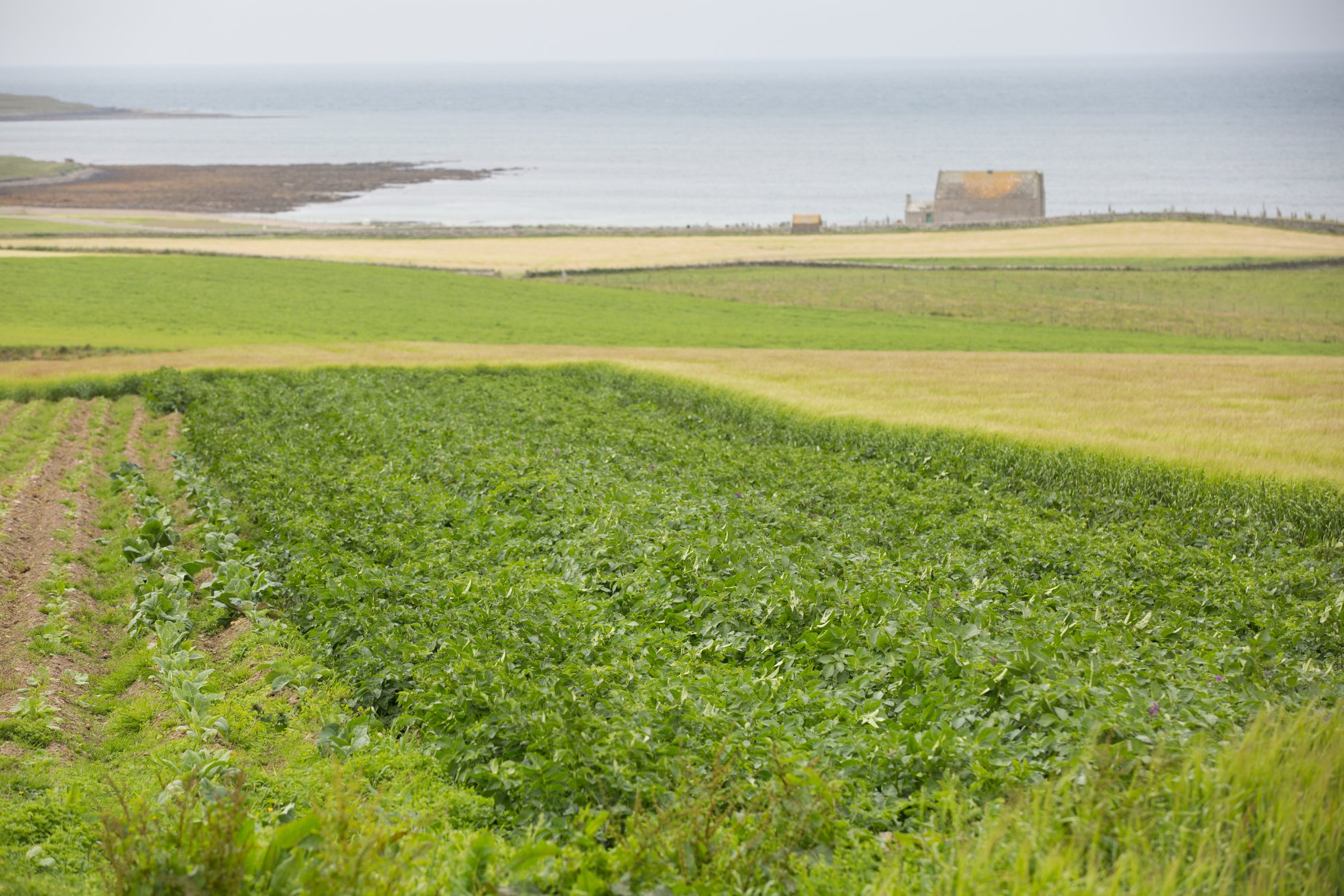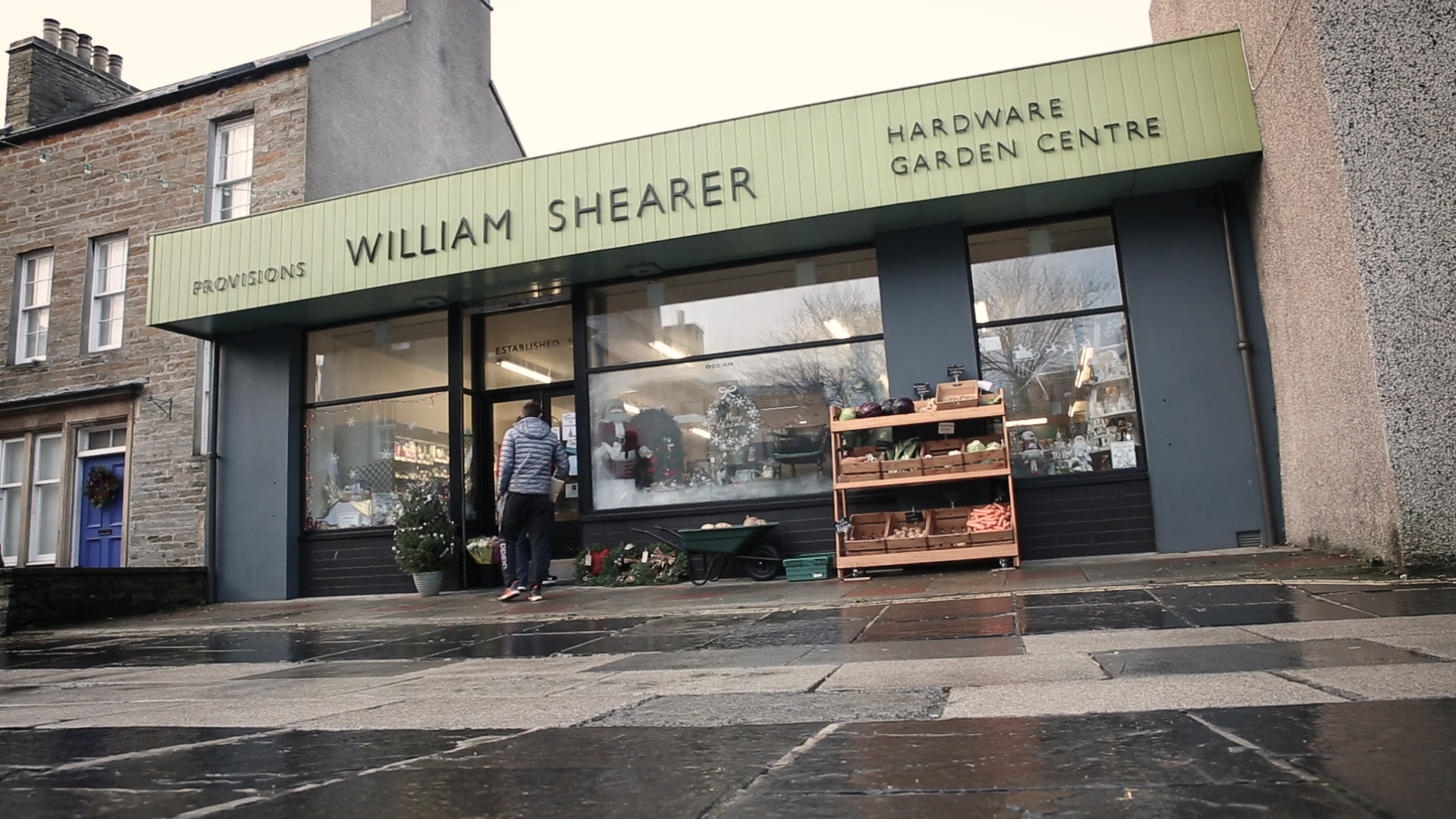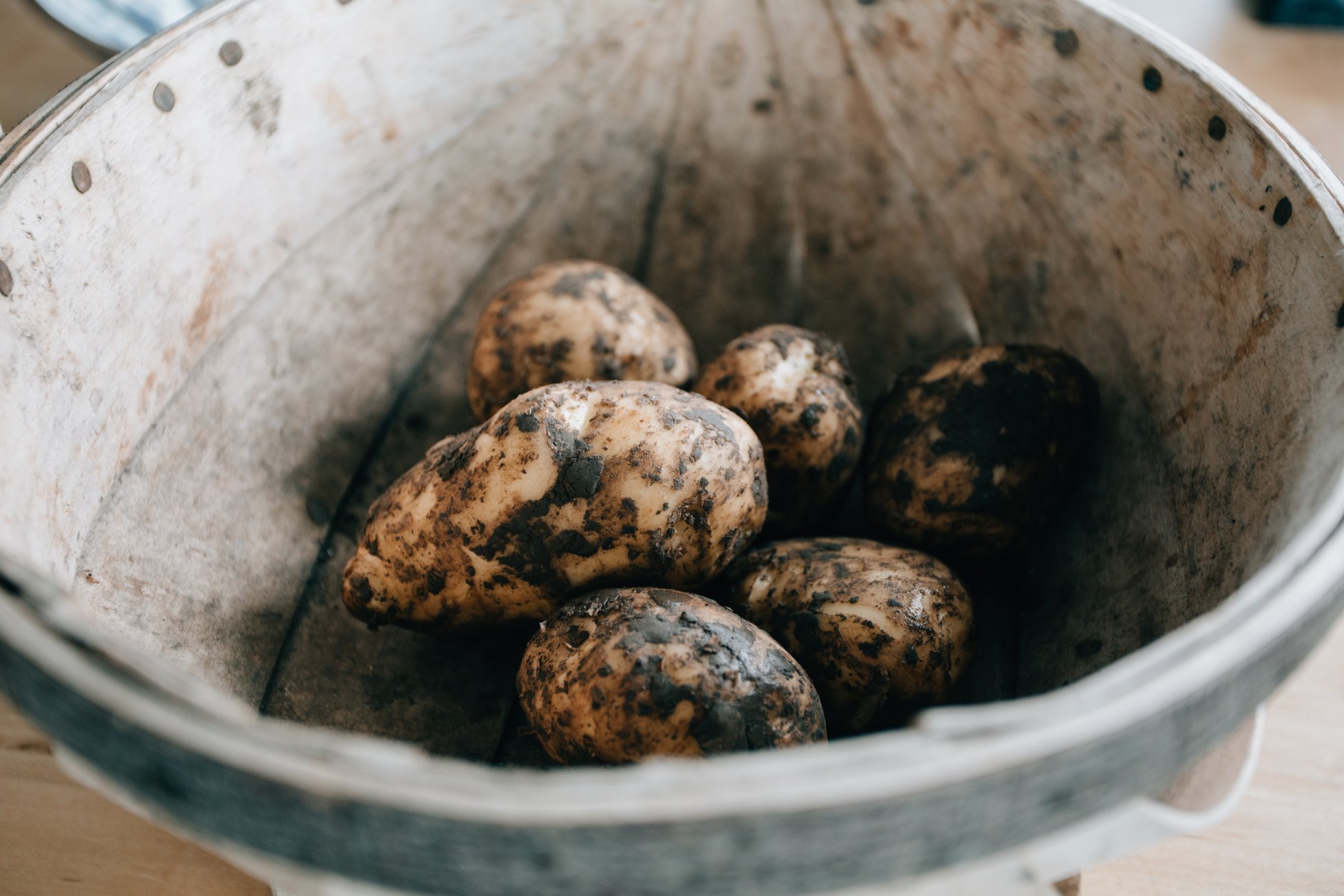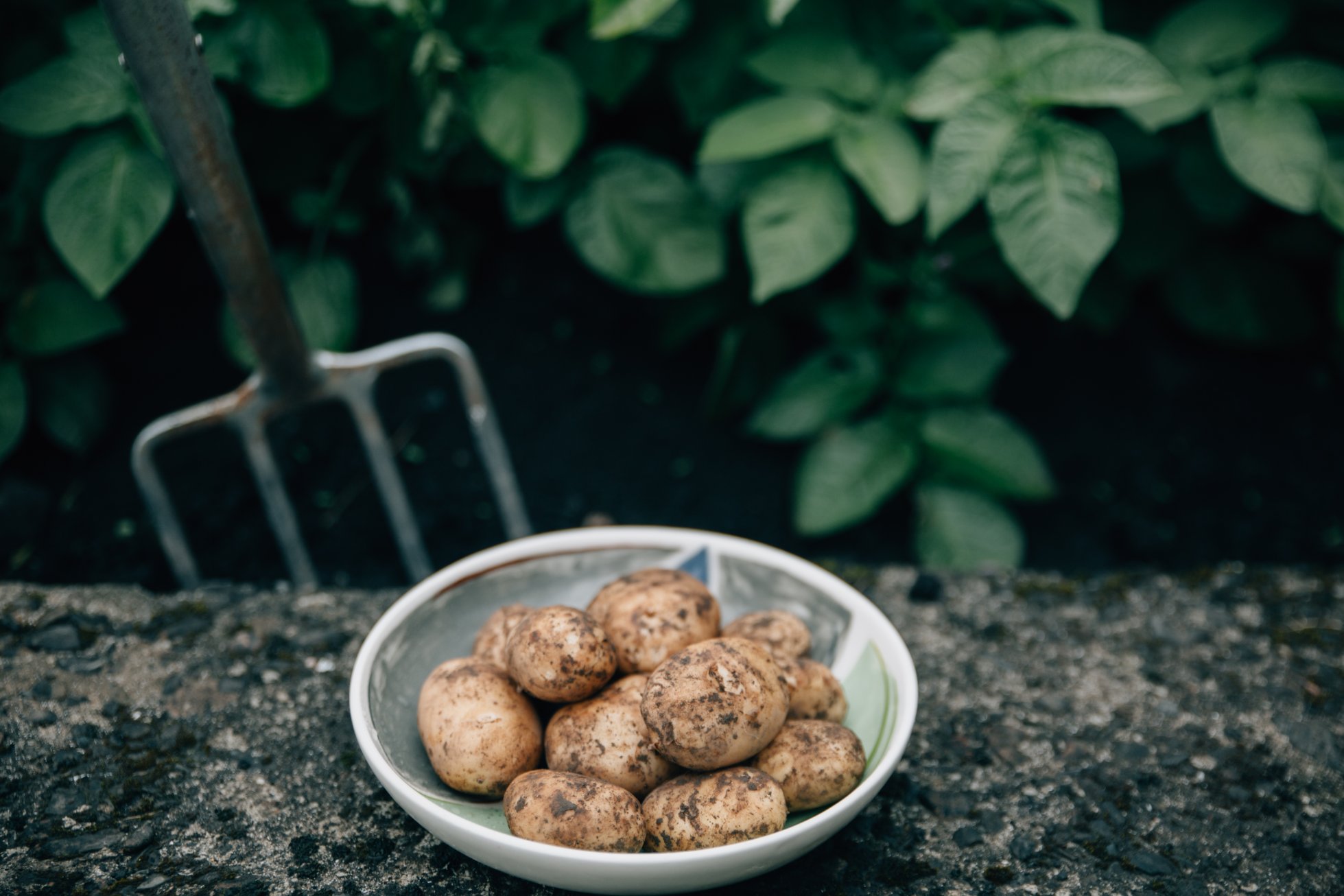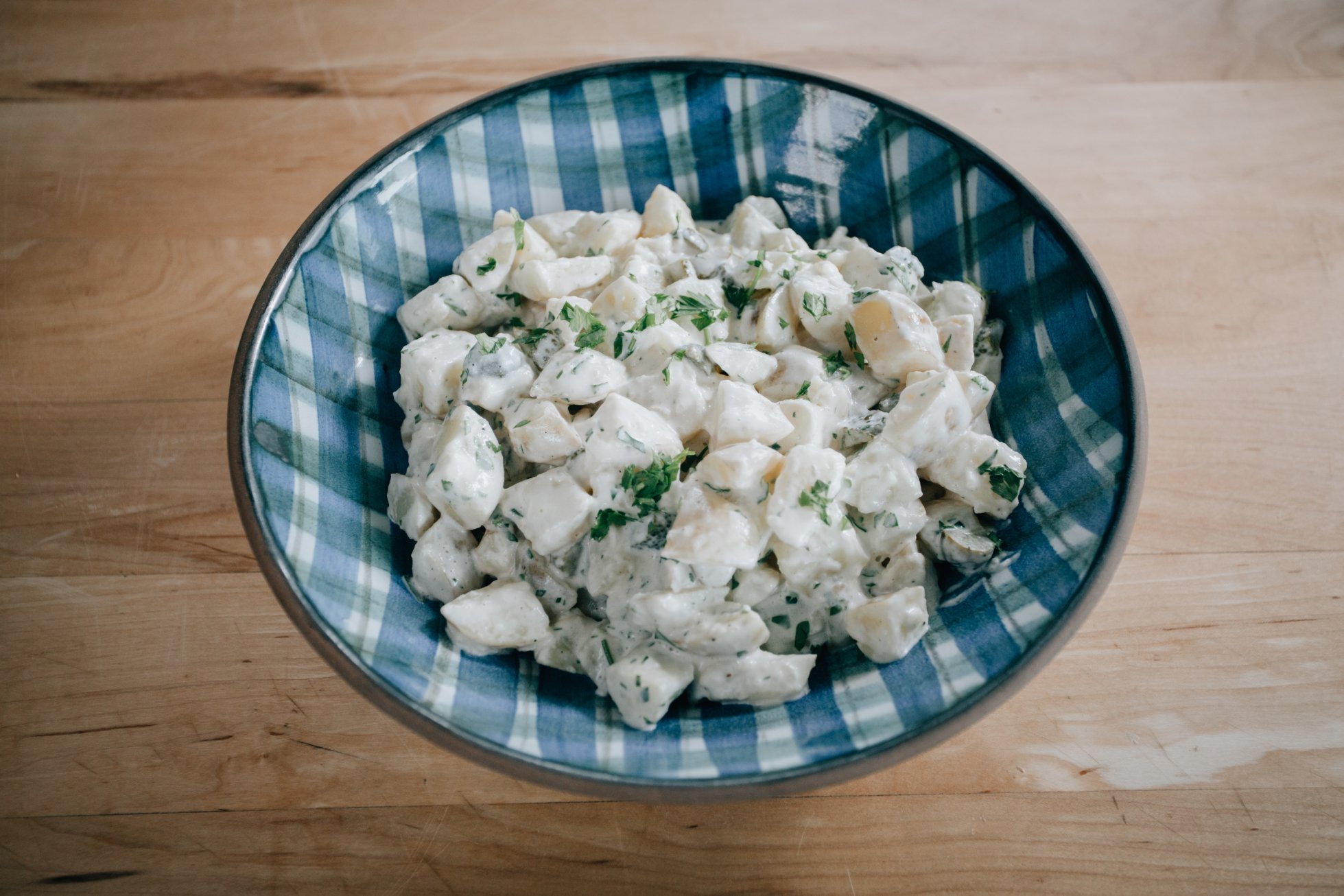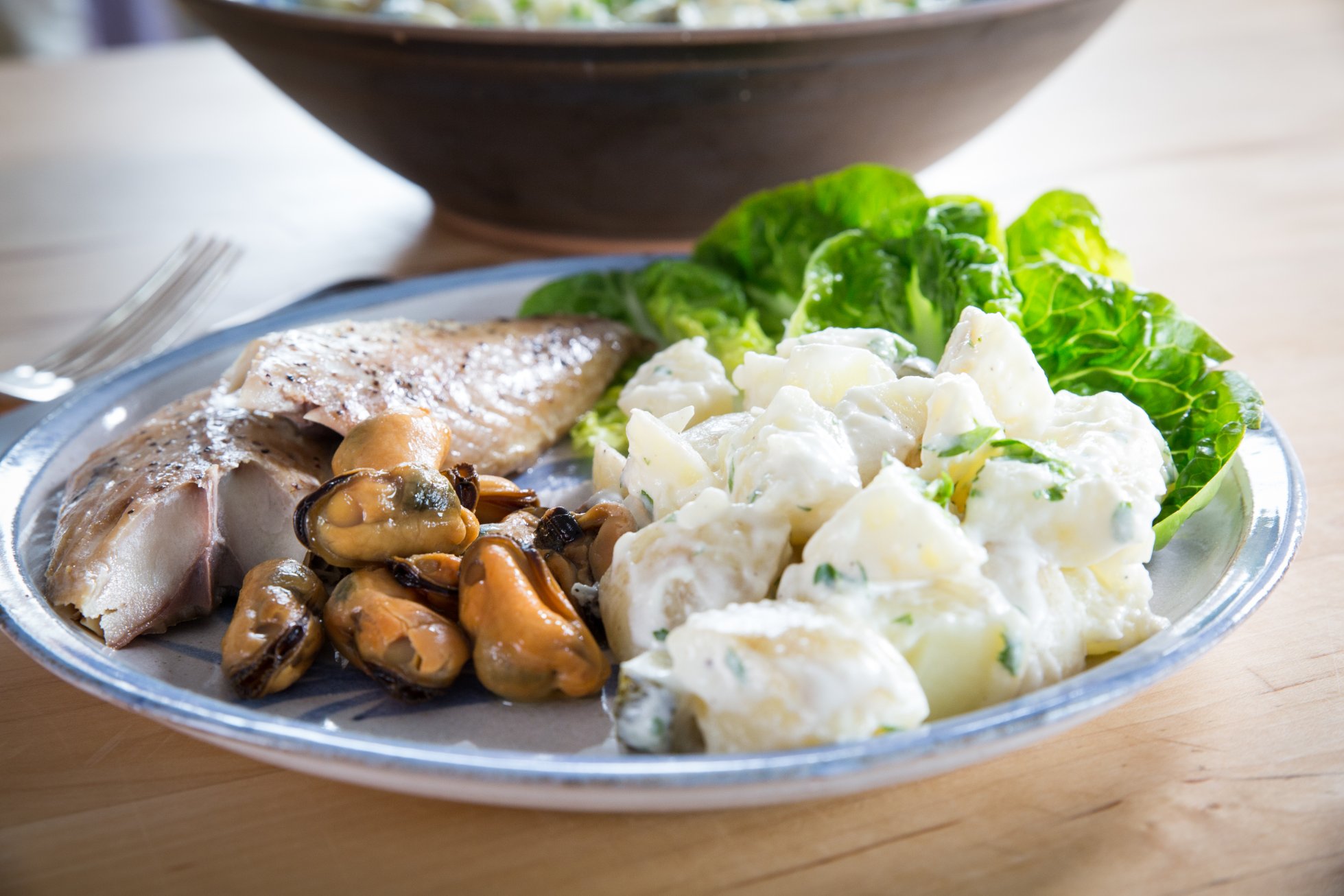Our regular food blogger Rosemary Moon has been sampling more of Orkney's finest produce this month. Keep reading to try her recipe for yourself.
Scottish island communities have a history of potato growing - well, since the early 19th Century, and that, in terms of Orkney, is actually very recent indeed.
Take a trip to Skara Brae, walk the amazing time-line to the village and you will see much of the history of the world laid out to match your paces. If it were the history of potato-growing there would be a stone celebrating potatoes being grown in Peru around 5,000BC and that stone would be quite some way beyond the village.
The earliest actually verified evidence of potatoes was found at the coastal city of Ancon in Central Peru and is dated to 2,500BC - that’s when Skara Brae was inhabited. People living at the same time as those in our World Heritage Site were feasting on a staple food that would take over 4,000 years to reach our shores but which has since become one of our tastiest crops.
Cookery writer Liz Ashworth explains the ups and downs of potato growing in Orkney and the Highlands in her book 'The William Shearer Tattie Bible'. William Shearer, the general merchants of Victoria Street in Kirkwall, was established in 1857, about ten years after the Great Potato Famine which not only affected Ireland, but also many areas of Scotland which had become over-reliant on one, albeit up until then very successful, crop.
Shearers are the acknowledged potato experts of Orkney, supplying seed tatties to home growers as well as offering local potatoes from Baillies of Tankerness for sale. Baillie’s tatties are also supplied to The Brig Larder and to butchers shops, including Fletts in Stromness; the Pierowall Fish shed in Hatston Industrial Estate and many local shops around the islands.
I bought my first bag of Baillie's Casablanca new tatties from the fish shed last summer. I had a food writer friend staying and neither of us had come across the variety before.
What a flavour!
Sold dirty to maintain quality and flavour, the potatoes were delicious and I am growing Casablanca in the garden this year, with seed potatoes from Shearers. Setanta has also been a revelation to me. Producing large red-skinned tubers that bake brilliantly, it is a good all-round main crop tattie and stores very well. Setanta is bred from Rooster and is a floury variety - the Scots have always preferred floury tatties over waxy ones as they tend to have a deeper flavour - and they chip better than waxy spuds.
Orkney tatties are not just about history. James Thorburn farms near the Sands o’Wright in South Ronaldsay and describes himself as a ‘potato multiplier’. Over a two-year period he will produce 55,000 seed potatoes from 4,000 mini-tubers of a new variety by planting, harvesting, storing and replanting. They will then be grown on into a commercial crop in another part of the country to avoid disease. It takes ten years for a new potato to come to market from concept and, according to James, the key driver for the industry is taste.
With the generational challenge of getting people to cook tatties instead of rice or pasta, potatoes need to deliver flavour and gain a more gourmet image. James has his own special potato for which he has the world-wide patent and he has named it Scapa. The pedigree of Scapa’s breeding from the Phureja potatoes of the Andes shows in its yellowy gold skin and flesh colour. It will be an all-round potato with a deep flavour - I felt a tasting evening coming on with Scapa ales and whiskies as we spoke about the Scapa tatties and James was warming to the idea as I left him - I hope he has some potatoes soon for this important development work!
Cooking new potatoes is different - they are best going into boiling water whereas most potatoes are brought up to the boil in water from cold.
James had been having a WhatsApp discussion with other ‘potato heads’ on this subject when we met. Whether you peel/scrape new tatties is up to you. When they are really freshly dug, before even papery skins have dried out on them, they really just need a slightly abrasive rub - I use a piece of loofa - to remove the dirt. Once the skins are a bit drier they can be scraped with a knife. Many people now cook them in their skins but sometimes the skins flake off and are not so good - I once prepared a lunch that Albert Roux, a very famous chef, was at and watched him peel the new potatoes as he ate them. It was not my finest moment.
Potato Salad
The first thing that I want to make with new potatoes is salad - it is so delicious, either warm or cold. I have two top tips: use a mixture of yogurt and mayonnaise to make the dressing lighter, and add the tatties to it when they are hot, so that they absorb some of the dressing - it makes for delicious eating. This is my basic recipe but you can add chopped hard boiled egg, chunks of cucumber and/or grated Orkney Cheddar.
Ingredients
You don’t need quantities for this - just do it!
- Potatoes, as fresh and local as possible
- Mayonnaise
- Natural yogurt
- Gherkins
- Parsley
Method
- Rub the potatoes or peel them, depending on how freshly dug they are, then cut them into 1-2cm chunks.
- Cook in boiling water for 10 minutes or until tender.
- Mix equal quantities of mayo and yogurt together in a bowl and season.
- Drain the potatoes then add them hot to the dressing. Toss well and leave to cool.
- Slice or dice the gherkins and finely chop the parsley. Add them to the cooled salad, season again and toss together before serving. The potatoes will absorb more dressing as they cool.
This potato salad is delicious with almost anything: cold cuts, BBQ’d chops or sausages, fillets of pan fried fish or smoked fish. Try it with Jolly’s smoked mackerel and Hume’s smoked mussels.
 Rosemary Moon ‘retired’ to Orkney after a long association with the salmon industry in the islands. The author of 19 cookery books and countless more recipes, including writing for Waitrose and Lakeland, she has brought journalists and food writers to Orkney in the past to show off our diverse and delicious food and drink. After several holidays here Rosemary and her husband Nick have settled in South Ronaldsay but, once a cookery writer always a cookery writer, Rosemary is finding it impossible to stop jotting down the new recipes that she is creating with the island produce.
Rosemary Moon ‘retired’ to Orkney after a long association with the salmon industry in the islands. The author of 19 cookery books and countless more recipes, including writing for Waitrose and Lakeland, she has brought journalists and food writers to Orkney in the past to show off our diverse and delicious food and drink. After several holidays here Rosemary and her husband Nick have settled in South Ronaldsay but, once a cookery writer always a cookery writer, Rosemary is finding it impossible to stop jotting down the new recipes that she is creating with the island produce.
Rosemary also writes and vlogs about whisky and is particularly interested in whisky and food matching. You can follow her on Twitter, Instagram and on her rosemarymoon.com and myorkneylarder.com websites.
The Digital Orkney project has been part financed by the Scottish Government and the European Community Orkney LEADER 2014-2020 Programme.
